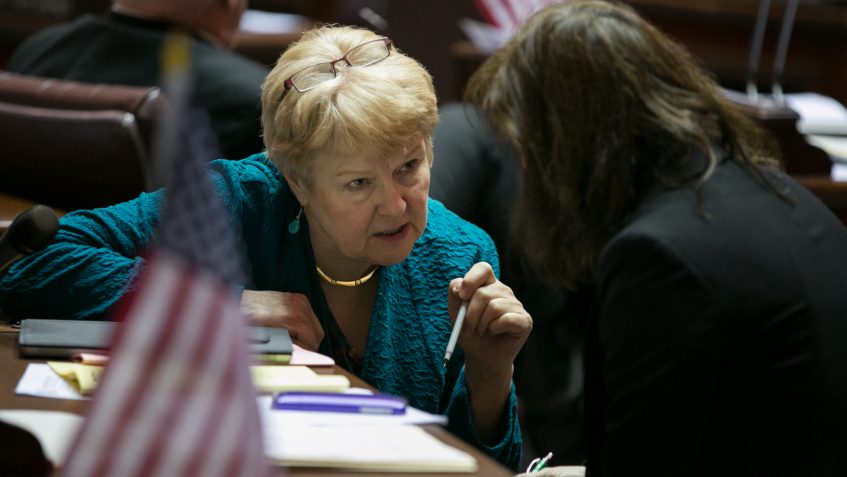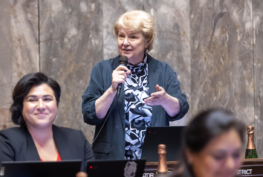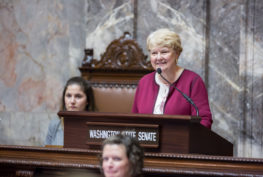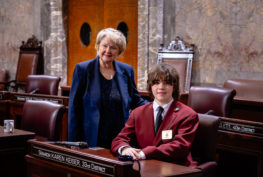Dozens of public districts would gain an alternative financing mechanism to pay for essential infrastructure projects to maintain and improve local roads, water and sewer systems and public buildings under bipartisan legislation that passed today out of the Senate Ways & Means Committee.
Senate Bill 5624 and constitutional amendment SJR 8204, sponsored by Sen. Karen Keiser, D-Kent, would authorize the state to create a bond pool from the combined local bonding authority of multiple public jurisdictions.
“This creates savings with an alternative financing path for public utility districts, water and sewer districts, ports and other public jurisdictions to obtain funding at much lower interest rates than they can leverage by themselves,” Keiser said. “By combining local bonding authority into a large pool, the state can sell bonds with lower administrative and interest rate costs than would be available to the districts on their own.”
The pool would be managed by the state Treasurer with technical expertise and review of proposed projects from the staff of the state Public Works Account, a successful 30-year program that provides technical advice to local jurisdictions on infrastructure projects.
Keiser’s approach addresses the ability to fund local projects that dried up when the funds in the state’s Public Works Account were diverted to help balance the state operating budget. “Restoring the full funding we have had in the past to this account with all the current demands for McCleary basic education funding, and mental health needs is most unlikely, but the needs of our local communities continue and must be addressed,” Keiser said.
“Unlike the funds that were in the Public Works Account, the bonds behind these loans can’t be swept into the operating budget. So this creates a permanent, sustainable fund to meet the infrastructure needs of communities across the state,” she added. The bill includes a constitutional amendment which must be referred to the ballot for a public vote.
Both pieces of legislation passed on strong bipartisan votes and now go to the Senate Rules Committee.





